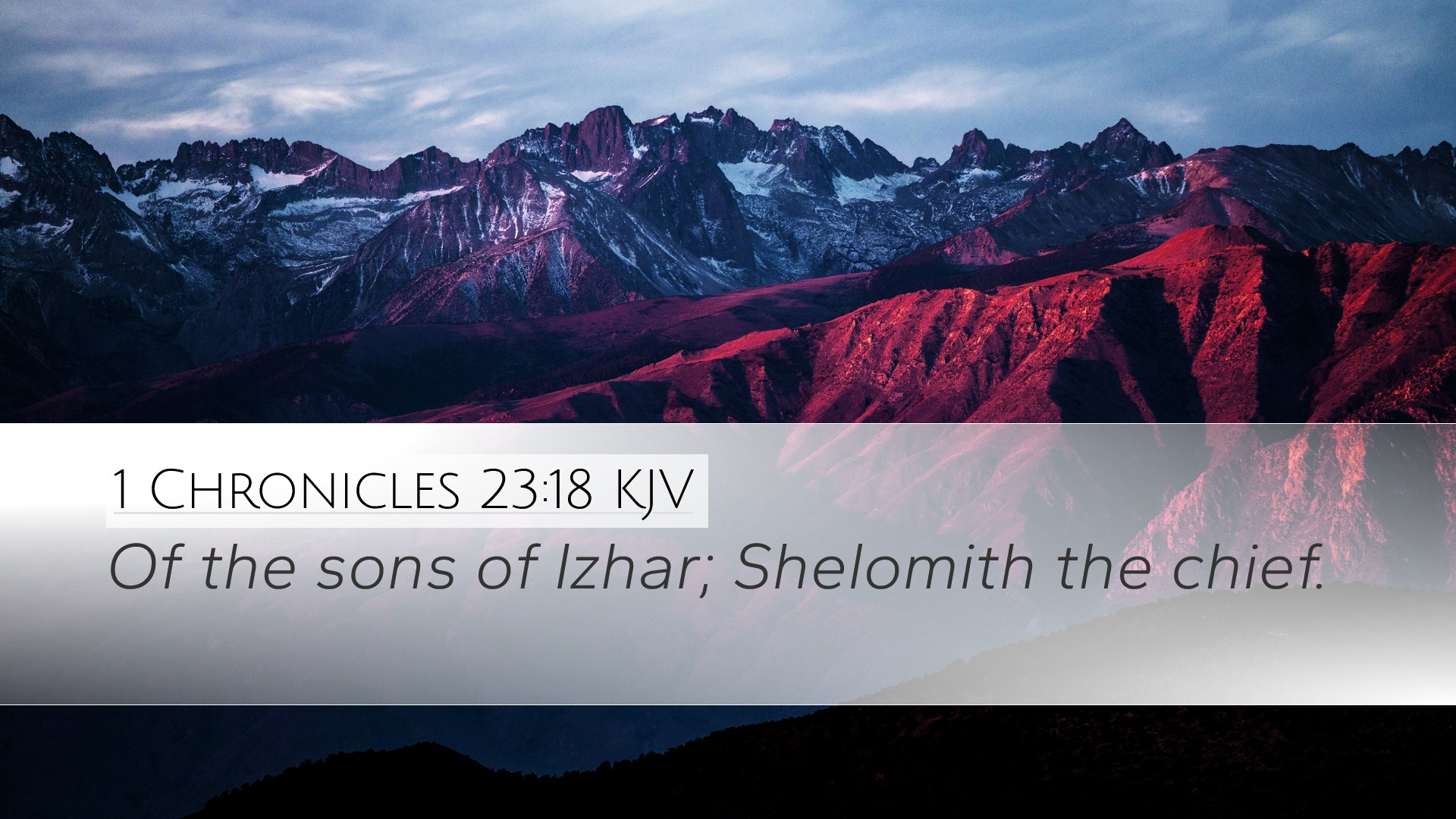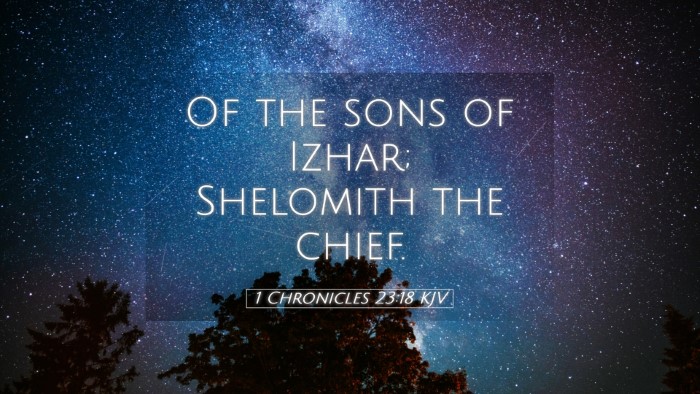Commentary on 1 Chronicles 23:18
Verse: "Of the sons of Levi, the chief was Ahijah; and the second was Iddo." - 1 Chronicles 23:18
Contextual Background
The book of Chronicles serves as a historical record for Israel, compiling genealogies, temple worship, and the duties of the Levitical priests under King David's reign. This verse is nestled within a broader chapter, which delineates the roles and responsibilities of the Levites after the establishment of the temple service.
Exegesis and Insights
The mention of Levi, specifically through the sons, highlights the significance of lineage and inheritance in Israel’s religious and social framework.
-
Ahijah: His designation as ‘the chief’ emphasizes not just leadership but a divinely appointed role that carries the weight of responsibility for worship and sacrificial duties within the Temple.
-
Iddo: As the ‘second,’ Iddo’s position illustrates the structure and hierarchy among the Levites, stressing the importance of organization in sacred matters. Each Levite understood his place, which was crucial for maintaining order during worship.
Theological Implications
This verse exemplifies God's ongoing relationship with Israel through specific individuals, reaffirming the notion that God acts through particular people and families.
-
Divine Order and Authority: The hierarchy within the Levitical priesthood reframes our understanding of divine governance. It is a reminder that God appoints leaders for His service—both evident in historical Israel and present pastoral ministries.
-
Service to God: The Levites' roles underscore the concept that serving God requires dedication and a sense of duty. This passage can challenge modern readers to consider their commitment in church leadership and service.
Insights from Historical Commentaries
The insights provided by various commentators offer a richer understanding of this verse:
-
Matthew Henry: He emphasizes that God's choice of the Levites, particularly figures like Ahijah and Iddo, teaches believers of God's providence in appointing those who would lead His people in holiness. Henry's interpretation encourages reflection on how God nurtures leadership within His church.
-
Albert Barnes: Barnes notes the significance of the Levites' organization as a model for ecclesiastical order. He argues that maintaining order and discipline in worship is essential for true worship of God. This aligns with the broader New Testament encouragement towards maintaining order in the church.
-
Adam Clarke: Clarke provided insight into the historical context of Ahijah and Iddo, noting their lineage and prior responsibilities regarding the Ark of the Covenant. This adds depth to the understanding of their roles, linking to the sacred traditions they upheld and the faithful service expected of them.
Application for Modern Readers
As scholars, pastors, and theologians engage with this text, it provides profound application:
-
Leadership in Ministry: The structure of Levitical duties challenges contemporary leaders to consider their own roles within the church, fostering a spirit of cooperation and accountability.
-
The Value of Heritage: Recognizing the importance of heritage in faith can serve to inspire both individuals and communities to remember their spiritual roots and maintain continuity in worship and service.
-
Commitment to Service: This verse is a call for all believers to serve diligently in whatever capacity they find themselves, whether as leaders or followers, reflecting the importance of each role in glorifying God.
Conclusion
In sum, 1 Chronicles 23:18 offers a snapshot of the divine order established among the Levites and their significant roles in leading worship. Through the insights gained from scholars and historical commentators, modern readers are encouraged to internalize these principles of leadership, service, and dedication in their own contexts of faith and community.


